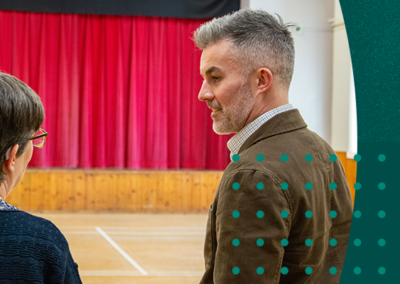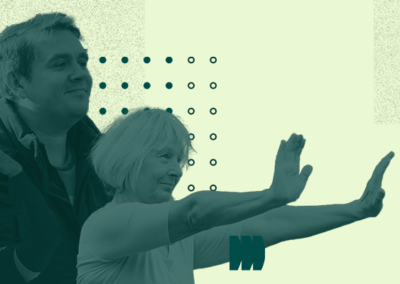What is the fund?
The £715,000 fund supports projects across York and North Yorkshire designed to help increase and support mental health activities in the community, workplace, and service settings for men and masculine-identifying people.

Why have we created this fund?
Suicide is the leading cause of death for men under 50, and although one in five men are diagnosed with depression or anxiety, the actual figure is likely much higher.
Poor mental health is a major cause of sickness leave, impacting personal wellbeing and the region’s economy.
By investing in the mental health of men and masculine-identifying people, we can reduce the demand in care services, improve sickness leave rates and support resilient local economies. When men are mentally well, families are stronger, children do better, and communities become more connected.
The fund has been designed in response to the findings of the rapid mapping exercise completed by Rocket Science UK Ltd, read the final report here.
What projects does the fund support?
The Men’s Mental Health Investment Programme provides funding to help increase active participation of men and masculine-identifying people in activities that help improve their mental health. This can be in the community, workplace or service settings.
We are keen to support projects that:
- Promote approaches that focus on men’s strengths and abilities to improve wellbeing
- Tackle stigma through male friendly engagement
- Reach diverse or hard to reach audiences (particularly. rural areas, neurodivergent young people, gay men, trans men, gender-diverse people, men from ethically diverse backgrounds, men affected by trauma, adverse childhood experiences (ACEs), and those in the justice system)
- Support men in the workplace for their mental health (enhancing workplace return/retention)
- Enhance digital presence and services in mental health
- Support individual behaviour change outcomes and structural shifts
We would still encourage other relevant projects to apply. The projects do not need to be explicit mental health activities, they can be projects that indirectly promote good mental fitness.
Who can apply?
Individual or collaborative applications are welcome from the following:
- VCSE organisations including charities, social enterprises, community interest companies, community groups
- Parish Councils
- Businesses (SMEs under 250 employees)
- Educational institutions
How much funding is available?
The minimum value available is £3,000 and the maximum value available is £30,000.
How do I apply?
Applications closed on Friday 2nd January 2025 and are currently undergoing appraisal. Sign up to our newsletter for further updates.
For more information, read the prospectus here.
Men’s Mental Health Taskforce
A Men’s Mental Health Taskforce was created to make sure the programme is based on expert advice. The taskforce has met regularly since April 2025 and includes the following partners:
- City of York Council
- Department of Health and Social Care
- Menfulness
- Movember
- NHS
- North Yorkshire Council
- North York Moors Trust
- University of York
The Taskforce have discussed the current landscape, identified where there are funding gaps and opportunities, and recommended how the Mayor’s role and Combined Authority investment could be applied to have the biggest impact.











